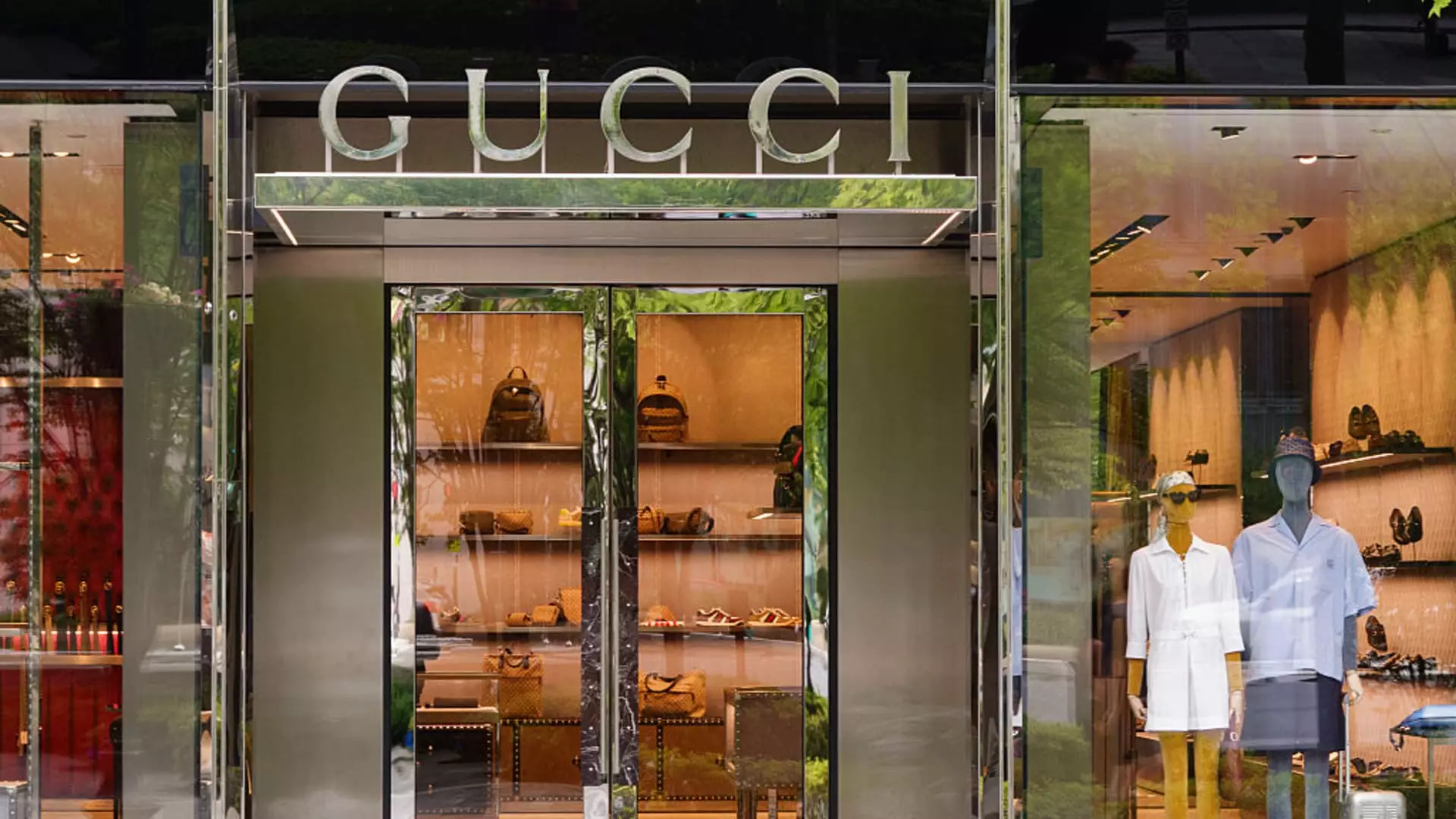The recent appointment of Luca de Meo as the new group CEO of Kering has sent shockwaves through the fashion industry—a realm typically populated by insiders. Reports emerged, causing Kering’s shares to surge over 10%, revealing a palpable sense of optimism among investors about this unexpected transition. De Meo, who has honed his skills over decades in the automotive sector, notably at Renault, now finds himself steering the ship of Kering, the owner of globally recognized brands including Gucci and Saint Laurent. This shift signifies more than just a leadership change; it encapsulates an urgent necessity for innovation and rejuvenation within a flagging luxury brand portfolio.
The Price of Decline: Gucci’s Diminishing Allure
Kering stands at a critical crossroads as it grapples with a significant valuation drop of over 60% in two years. This decline can be traced back to multiple profit warnings, particularly surrounding Gucci—the flagship that, until recently, set the gold standard in luxury fashion. As consumers grow weary of the brand’s appeal, the pressure mounts for new leadership to restore Gucci’s glamour and relevance. The fashion world is unforgiving; trends shift quicker than seasons change, and today’s darling can easily become tomorrow’s has-been. De Meo’s track record in transforming Renault signals promise, but the question looms large: can his skills in car manufacturing translate into a successful revival of luxury brands?
De Meo: An Unlikely Hero in a Fashion Narrative
While the automotive and fashion industries may seem worlds apart, certain elements—like brand management and storytelling—are akin at their core. Analysts are cautiously optimistic about De Meo’s diverse background. His tenure at Renault was marked by impressive feats, including elevating the brand’s global profile and investing in technological innovations, which could bode well for Kering. Kering’s needs are pressing; with decreasing revenues and a faltering customer base tattooing echoes of its past failures. Investors, however, should temper their excitement with the realistic acknowledgment of the struggles that accompany luxury brand turnarounds.
Renovation, Not Revolution: The Challenges Ahead
Thomas Chauvet from Citi asserts that turning around luxury brands is an intricate ballet—far from simple or instantaneous. Those who pin their hopes solely on appointments like De Meo’s might be setting the stage for disappointment. The luxury market, with its unique consumer dynamics, is increasingly resistant to heavy-handed changes, preferring subtlety and finesse over disruption. While Kering seeks to pivot from its previous setbacks, the challenge lies not just in innovation but also in executing that vision effectively within an industry fixated on heritage and exclusivity.
The Legacy of Pinault: A Double-Edged Sword
François-Henri Pinault, Kering’s long-serving CEO and the figure behind many of its current pitfalls, is actively preparing for succession. His decision to split the roles of chair and CEO may seem prudent, yet it also raises questions about the future trajectory of Kering. If the very man responsible for the company’s decade-long decline remains in the background, can De Meo carve out his vision without being overshadowed by lingering decisions from the past? Transitioning leadership is often complex, rife with challenges that hinder agile responsiveness—a critical necessity in fashion.
Fostering a New Vision Amidst Economic Hurdles
Kering’s struggles are compounded by broader macroeconomic challenges. Rising costs and shifting consumer spending habits have left their mark, with a staggering 25% drop in Gucci’s comparable sales showcasing the need for immediate action. The luxury sector is notoriously fickle; it thrives on the delicate balance between exclusivity and accessibility. As de Meo embarks on this perilous journey, he must find a way to not only rejuvenate Kering’s brands but also reinvigorate consumer trust and loyalty that has faded thanks to stagnation.
In this new chapter, as Kering brims with the promise of a renaissance, only time will tell if de Meo’s appointment brings with it the revolutionary changes necessary to restore the luster of luxury. Stakeholders, brands, and consumers alike hold their breath, waiting in anticipation for this spectacular trial by fire.

